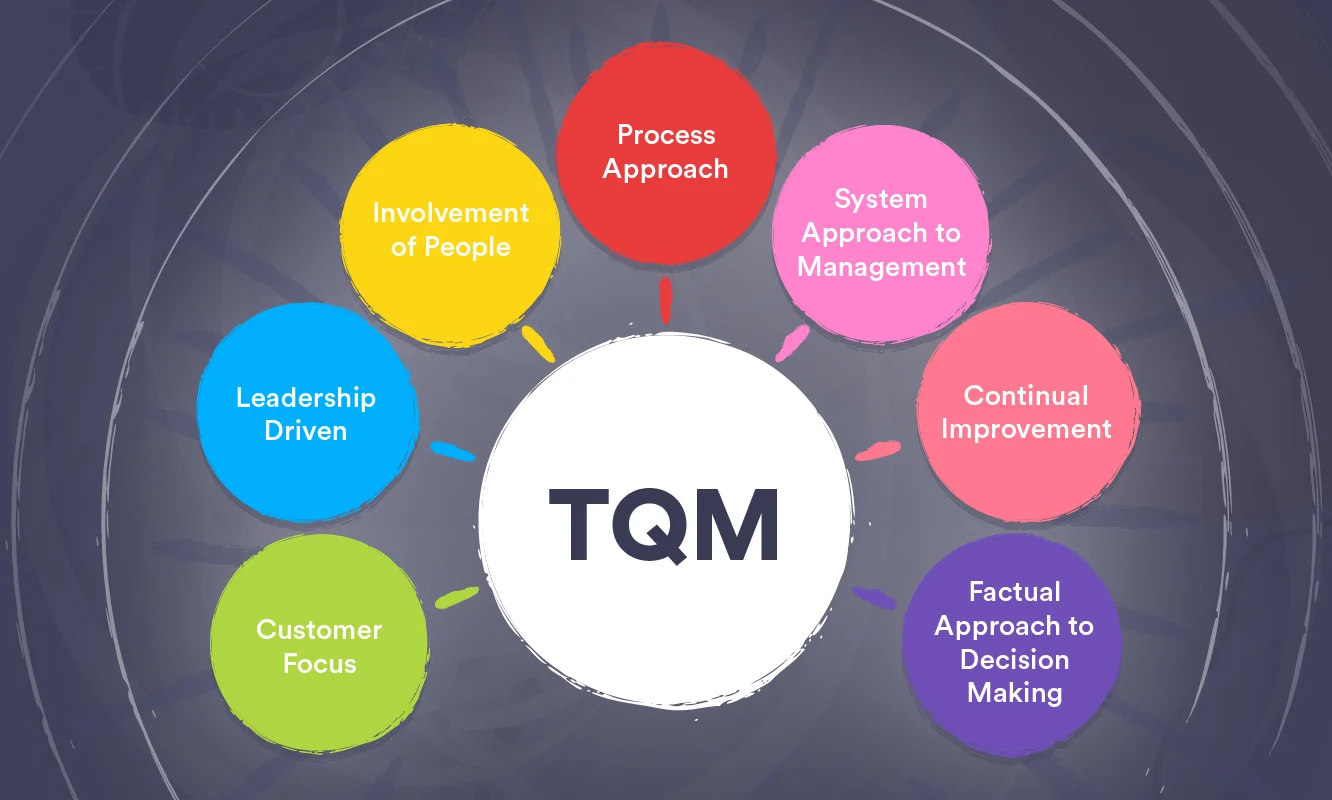Sure, here’s an article on Total Quality Management (TQM):
Total Quality Management (TQM) is a management approach that focuses on continuous improvement in all aspects of an organization’s operations. The goal of TQM is to improve customer satisfaction, reduce costs, and increase efficiency by involving all employees in the process of continuous improvement.
TQM is based on the principle that quality is everyone’s responsibility, not just the responsibility of the quality control department. It involves a holistic approach to managing an organization, where all processes and systems are designed to produce high-quality products and services that meet or exceed customer expectations.
The foundation of TQM is the belief that quality can be achieved through continuous improvement. This improvement is achieved by constantly evaluating and refining processes and systems to ensure that they are efficient, effective, and meet the needs of the customer. TQM also involves a focus on prevention, rather than detection, of defects and errors. This means that processes are designed to prevent errors and defects from occurring in the first place, rather than relying on inspection and correction after the fact.
TQM involves a number of key elements, including:
- Customer focus: TQM is centered around meeting the needs and expectations of customers. This involves understanding customer needs, preferences, and expectations and designing processes and systems that meet these requirements.
- Continuous improvement: TQM involves a commitment to continuous improvement in all aspects of an organization’s operations. This involves constantly evaluating and refining processes and systems to ensure that they are efficient, effective, and meet the needs of the customer.
- Employee involvement: TQM involves involving all employees in the process of continuous improvement. This means that everyone in the organization is responsible for quality and is encouraged to contribute to the improvement process.
- Process management: TQM involves a focus on managing processes and systems to ensure that they are efficient, effective, and meet the needs of the customer. This involves identifying and eliminating waste and inefficiencies in processes, and ensuring that resources are used effectively.
- Data-driven decision making: TQM involves using data to make informed decisions about processes and systems. This means collecting and analyzing data to identify trends, patterns, and opportunities for improvement.
Implementing TQM requires a significant commitment from an organization. It involves a fundamental shift in the way that an organization operates, and requires a culture of continuous improvement and a focus on customer satisfaction. The benefits of TQM, however, can be significant. Organizations that implement TQM have been shown to experience improved customer satisfaction, increased efficiency, and reduced costs.
In conclusion, Total Quality Management (TQM) is a management approach that focuses on continuous improvement in all aspects of an organization’s operations. TQM involves a holistic approach to managing an organization, where all processes and systems are designed to produce high-quality products and services that meet or exceed customer expectations. Implementing TQM requires a significant commitment from an organization, but the benefits can be significant, including improved customer satisfaction, increased efficiency, and reduced costs.



